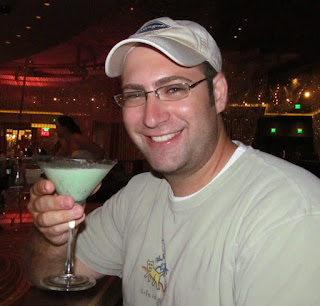Although this immediately manifested to me in working with our programming associate at Beach Hillel, I realized that this is true in other contexts, such as when I worked at a BBYO summer leadership program this summer, that the college students who were working there with us were not only fellow staff, but still very much on their own Jewish journeys who could use some shepherding in their own growth. This is, by the way, totally not obvious. In the way that the operations work there, all of the staff is focused on the participants. That's not a bad thing - it churns out great results! However, why not take it a step further and develop those working in the Jewish organization?
 In sum, it is important for those working in Jewish organizations, especially those focusing on serving particular young people as their target audience/end-users to not lose sight of the bigger picture: developing and ameliorating the talents of the Jewish people. If one has already hired someone (especially a young/emerging adult), then one is already committed to this person and believes in their talents, skills, and passion, not to mention investing the efforts of their organization in having this person work for them. Moreover, the director/executive director (or whomever) are hopefully also endeavoring in seeking professional development and training them to be better professionals in their line of work. However, it is also important to invest in seeking to ameliorate that [young] person's Jewish identity in that process, since this person (it is fair to presume) chose to work in a Jewish organization because they appreciate what the Jewish communal world has to offer in ameliorating and helping them and other Jews along in their lives.
In sum, it is important for those working in Jewish organizations, especially those focusing on serving particular young people as their target audience/end-users to not lose sight of the bigger picture: developing and ameliorating the talents of the Jewish people. If one has already hired someone (especially a young/emerging adult), then one is already committed to this person and believes in their talents, skills, and passion, not to mention investing the efforts of their organization in having this person work for them. Moreover, the director/executive director (or whomever) are hopefully also endeavoring in seeking professional development and training them to be better professionals in their line of work. However, it is also important to invest in seeking to ameliorate that [young] person's Jewish identity in that process, since this person (it is fair to presume) chose to work in a Jewish organization because they appreciate what the Jewish communal world has to offer in ameliorating and helping them and other Jews along in their lives. ---- - On JDub's demise, see the pieces of Tamar Snyder in the Jewish Week, Jacob Berkman in the Forward, and Dan Brown in eJewish Philanthropy.
- Ms. Walman also brings up other issues at the end of her piece which are very important for Jewish communal organizations and Jewish communal professionals to consider. She brings up "the question of sustainability of this type of work, and the aging-out that seems to inevitably be happening", continuing: "the salary, the hours, the lack of stability and the inability to have any separation between my personal and professional life … was not sustainable for me in the long run. The cost of Jewish living, if one chooses to do so, is astronomical and, at some point, the balance between my love and passion for my job was outweighed by the reality that I wouldn’t be able to support my family or have any time for them." She pertinently queries: "How do we ensure that professionals working within these innovative organizations can continue to pursue their passions, inspiring other young Jews like themselves while also having sustainable careers?", concluding that "it’s an important point to consider as more and more founders move on from the organizations they started and staff changeover continues to increase." I do not have the answers, but she raises deeply significant issues for the Jewish community to consider.


















